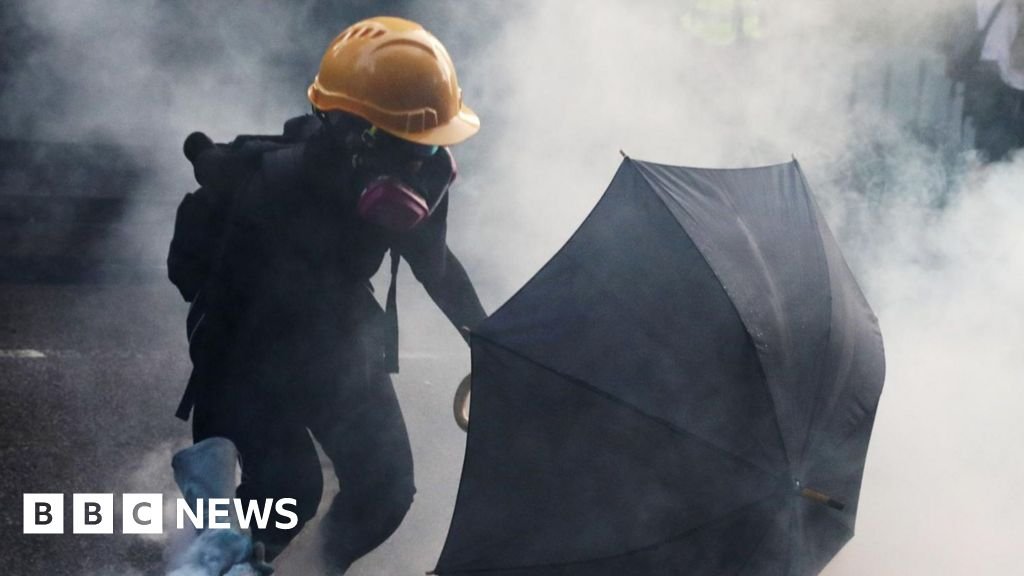The memories began to flood back as Kenneth strolled through Hong Kong’s Victoria Park, once the center of the city’s resistance to China.
As a child, Kenneth bought calligraphy posters from pro-democracy politicians at the annual Lunar New Year Fair.
Then there were the protest marches he joined as a teenager, which always started here before going through the city. When he was just 12 years old, he began attending mass vigils in a park commemorating the Tiananmen massacre – taboo in mainland China but openly celebrated in Hong Kong.
Now these guards are over. Political stalls at the fair disappeared, protests died down, and democratic activists were imprisoned. Kenneth feels that his political maturity – and Hong Kong’s – is being erased.
“People are still living… but you can feel the change gradually,” said the former activist, who did not want to reveal his real name when he spoke to us.
“The character of our city is disappearing.”
On the surface, Hong Kong appears the same, its packed streetcars still rumbling through busy streets, its bright, neon-lit chaos undimmed.
But look closer and there are signs that the city has changed, from the skyscrapers that light up every evening in celebration of China, the motherland, to the chatter of mainland Mandarin that is increasingly heard alongside Hong Kong’s native Cantonese.
It is impossible to know how many of Hong Kong’s population of more than seven million welcome Beijing’s control. But hundreds of thousands have taken part in protests over the past decade since the pro-democracy movement exploded in 2014.
Not everyone supported it, but few would dispute that Beijing crushed it. As a tumultuous decade draws to a close, hopes for a freer Hong Kong have faded.
China says it has fortified the volatile city. Hundreds have been jailed under the sweeping National Security Law (NSL), which has also forced thousands of disaffected and wary Hong Kongers abroad, including activists who feared or were fleeing arrest. Others, like Kenneth, have stayed and are keeping a low profile.
But many of them have memories of a freer Hong Kong, a place they fight for, objecting to Beijing’s remaking of their city.

